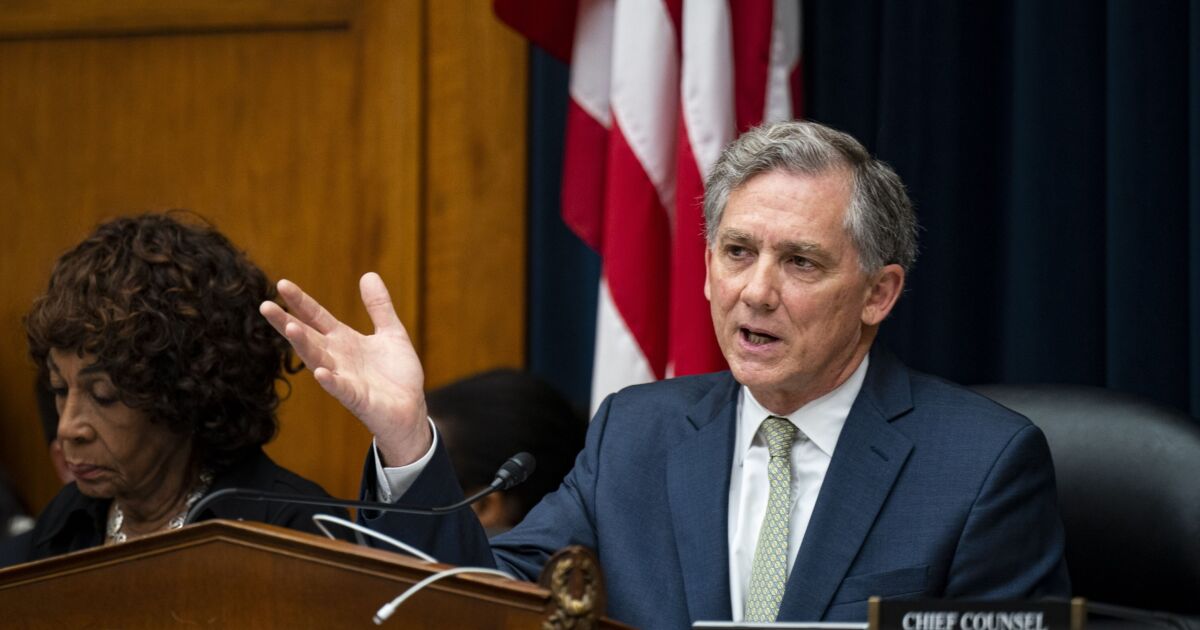
WASHINGTON — House Republicans began their attempt to roll back significant parts of the Dodd-Frank Act, targeting not just the Consumer Financial Protection Bureau but a
Republicans have for years complained about what they call regulatory overreach in the wake of the 2008 financial crisis, which led to the creation of the Dodd-Frank Act and the CFPB. While those complaints have been little but political posturing in the past, Republicans for the next year and a half at least hold a rare trifecta in Washington, and are motivated to pursue some of their long-held policy aims.
House Financial Services Committee Chairman French Hill, who scheduled the hearing on Dodd-Frank rollback close to the law's 15th anniversary, said at the hearing that the HFSC will take a close look at the law and which bits need to be reformed.
"Dodd-Frank was sold to the American people as a sweeping fix to prevent another crisis, yet over time it has become clear that this approach has not delivered as promised for Main Street," Hill said. "Instead, history shows that it punished community financial institutions through its one-size-fits-all mandates, shifted activity outside the banking system, created new and unaccountable agencies like the CFPB, and prioritized duplicative compliance and regulation by enforcement over actual consumer protection."
The hearing also comes in the middle of hectic "crypto week" in the House, where lawmakers expect to vote on the House floor on two signature pieces of legislation, the market structure and
"Today we're focused on Dodd Frank and it brings the PTSD of the 2008 crisis, when this committee said, never again,"said Rep. Brad Sherman, D-Calif. "History doesn't repeat itself, but it rhymes. We have an echo of 2008 in crypto week now."
Democratic lawmakers also signaled that they would fight to maintain the CFPB.
"From slashing CFPB's budget in half to firing dedicated staff, or halting lawsuits that would return stolen money to victims from them, [Republicans] are dragging us back to the dark days before Dodd-Frank when consumers had no one looking out for them in the financial marketplace," ranking member Rep. Maxine Waters, D-Calif., said. "Committee Democrats are committed to defending the Dodd-Frank Act from Republicans' 15-year campaign to repeal the law. We will also continue fighting against reckless deregulation that favors megabanks and Big Tech over community banks and credit unions, that puts our taxpayers at risk."
While Republicans have a majority in the House and Senate, Dodd-Frank rollback can't pass without at least some Democratic support. That might limit some of their more ambitious ideas — like dismantling the CFPB — but there are some bills where they might find wiggle room to work with Democrats.
Rep. Gregory Meeks, D-N.Y., said during his time asking questions at the hearing that he would be open to the idea of a bipartisan commission at the CFPB. Democrats might think that, now that the CFPB is under the leadership of Russell Vought who is trying to fire most employees and shutter most of the bureau's functions, that a bipartisan board might give the CFPB more protection in the future.
Rep. Bill Huizenga, R-Mich., the vice chair of the committee, asked about limiting the powers of the Financial Stability Oversight Commission. There, too, Republicans might find some bipartisan support. Rep. Bill Foster, D-Ill., recently cosponsored a bill with Huizenga that would make it more difficult for FSOC to designate nonbanks as systemically important.
Another bill from Rep. Andy Barr, R-Ky., who chairs the financial services subcommittee, has bipartisan cosponsors in Reps. Jared Moskowitz of Florida and Vicente Gonzalez of Texas. The bill would



